Share the post "Soccer Coach Duties (Responsibilities + Methods)"
At the youth level, a soccer coach plays an extremely important role. The difference between a good coach and a bad coach can make or break an experience for young players.
You take on certain responsibilities when you volunteer or are hired to coach soccer. You immediately become an important part of a young soccer player’s life.
Having coached youth soccer myself, I understand the importance of the role and how a coach can have a lasting impact on players. What makes the responsibility of coaching soccer worthwhile?
Nothing is more rewarding than when a player you coached in the past reaches out to tell you how thankful they are for your efforts.
It is important to remember that a soccer coach does not just influence a player’s development as a player. They are important in their development as people, let’s find out more...
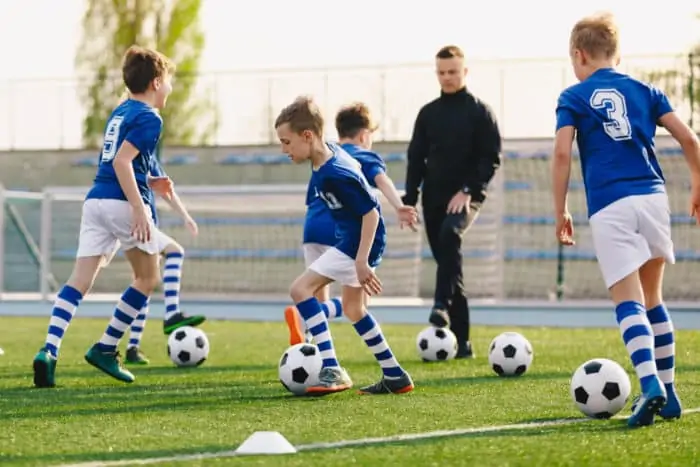
What does a youth soccer coach do?
Youth soccer coaches can have varying responsibilities depending on their coaching level. First and foremost, their job is to teach the game to the kids they coach.
Some soccer coach responsibilities include:
- Selecting a team
- Organizing training sessions
- Communicating with parents
- Scheduling practices
- Scheduling games
- Registering for tournaments/leagues
- Attending league meetings
- Administrative duties (e.g., registering players)
Duty to develop Players
The most important part of any soccer team is its players. No matter your level, the coach is responsible for their players. Sometimes coaches have a choice in which players they have on their teams, but sometimes they are assigned through a league.
No matter the case, your goal as a youth soccer coach, should be to oversee the development of each player. Young players’ abilities are going to range widely. You might have to work with someone who has never touched a soccer ball.
If that is the case, you should focus on teaching basic skills like dribbling, passing, and shooting. As you progress through the ranks, you might end up with a high-level club team full of committed players.
While the fundamentals are still important, you can also start to work on more detailed parts of the game, such as tactics.
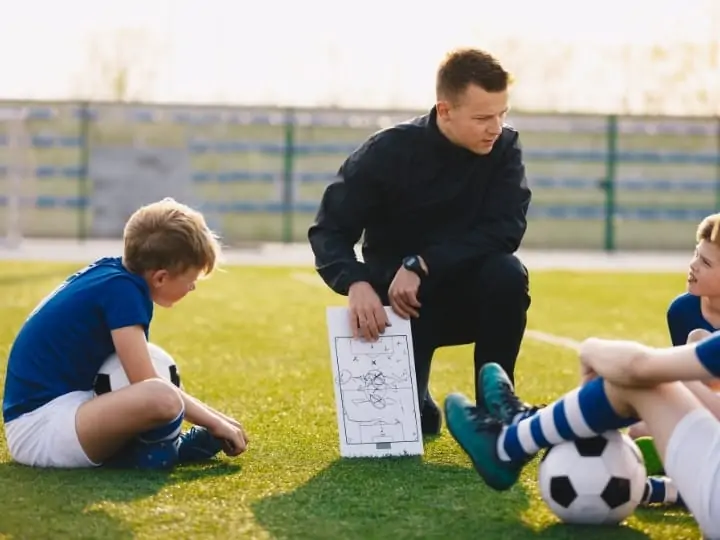
Which Youth League To Coach
There are a couple of different types of soccer in our soccer system. There is recreational soccer and club (select) soccer.
Club teams are usually more advanced, while recreational teams focus more on learning the games.
Select Soccer
In most recreational leagues, a parent or volunteer will coach the team. Because it is recreational play, the objects are to have fun and learn the game.
These leagues can be competitive, but most of the time are just used for learning purposes.
- They are extremely valuable for communities and a great way to get kids involved in the sport.
Club Soccer
Club teams are geared more towards players and coaches who strongly desire to take their game to the next level. Teams are usually formed using a tryout process.
Coaches will have the opportunity to evaluate players and hand-pick them to strengthen their side. Club teams can often cost a hefty sum of money.
Once a coach has their team, their next priority should be to put together a coaching plan. Their plan might include coaching philosophy, goals, schedule, team rules, and expectations.
This will help the team and coach stay on track by serving as a reference guide for their season.
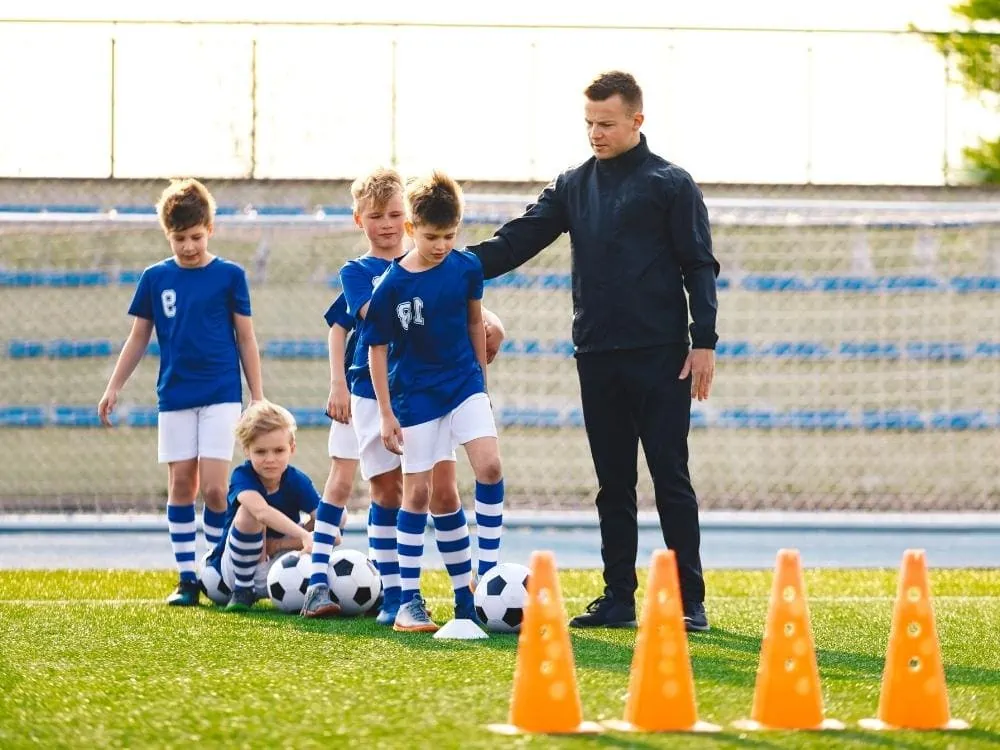
How to Manage Parents
Parents can be one of the most difficult things for any youth soccer coach. Sometimes it is forgotten that these are children playing the game.
Every parent wants to see their child succeed. Some parents have an inflated view of just how good their child is. Others just want to make sure they are being treated fairly.
When players first start, it is important to remember a few key things:
- The objectives of the game are to learn and have fun
- Every play learns the game at a different pace
- Each player deserves time and patience
- Kids will be kids. Don’t take it too serious
- Not every game is about the final result
This information can be useful for parents and coaches.
Eventually, as the players get older and start to take the game more seriously, playing time can be determined based on skill level, and results can become more important.
Even then, an adult coaching kid has an opportunity to teach lessons that extend off the field. Additionally, parents must respect their youth player’s coaches.
More often than not, these coaches are people who are volunteering their time or working for small sums of money for nothing more than the love of the game.
Many parents have tried to undo what a child learns at training. Whether you think a coach’s decision is right or wrong, their ultimate goal is to help the players and the team.
They must be able to do that without being approached by an angry parent after a game.
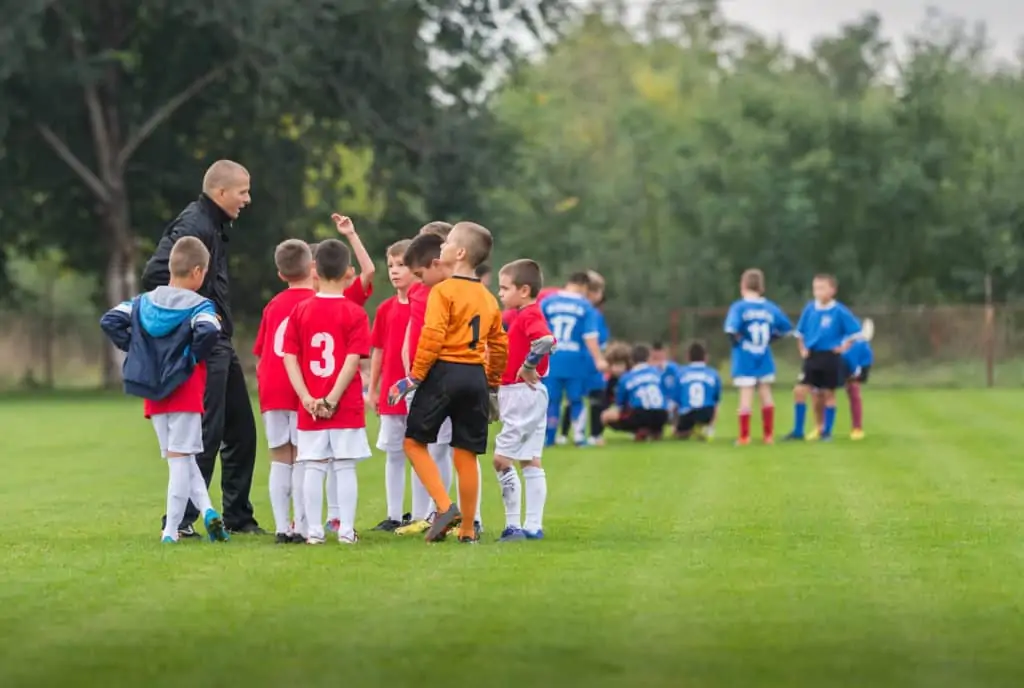
How to plan a successful training session
Training is where coaches have the greatest opportunity to work with their players. It is important, however, that coaches make sure their training sessions are well thought out.
Youth practices should mix engagement and fun with learning and competition, especially for beginner soccer players.
Here are some tips for planning a successful training session:
- Keep sessions short – even at the highest level, training for more than the length of a game can end up doing more harm than good
- Have a plan – coming into a session knowing what you are going to do eliminates downtime and ensures you get more out of each practice
- Mix it up – working on technical skills is important, but spending most of your time on basic activities can burn out players. Instead, find games that might help them learn those skills in a more fun way.
- Keep it moving – being able to adjust on the fly is important. Sometimes a great drill just isn’t clicking with a team. Adjust or move on to the next thing if something isn’t working.
- Stay calm – coaching a youth team can be difficult. The mind of a child can be sporadic. They want to play and might not always be focused on soccer. Do your best to have patience, even if they aren’t interested in soccer that day.
If you are coaching a youth team, you may only have a few days a week to teach them the game. Use that time wisely.
It isn’t always going to be easy, but if you keep working at it, you will find a system that works for you and your team.
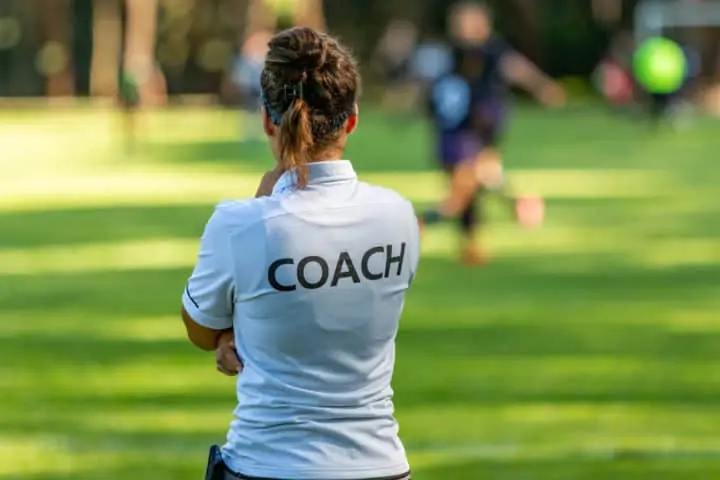
How to Plan a Game?
Games are where you and your team have the opportunity to put it all together. Everything that you work on in training is finally put to the test.
Whether coaching an under-6 rec team that doesn’t keep score or an under-17 team competing to win major competitions, playing the game is what soccer is all about.
How each coach approaches a game is largely a matter of personal preference. Some coaches feel that what they do in training should be enough for the players to go off.
- Then, they are very hands-off in the coaching process. They’ll watch and make adjustments if necessary but largely prefer to stick to their game plan.
- Others prefer to be more involved in the game. They constantly talk to their players, acting more like an orchestra conductor than a soccer coach.
There’s no wrong way to do it. Ultimately, it is the right thing to do if it works for you and your team.
Coaches can be some of the most influential people in an athlete’s life. Even if you don’t continue to play the game, how a coach treats and speaks to you can be impactful.
As coaches, we have the power to determine whether or not our impact is positive or negative.
I hope all coaches will do their best to ensure each player walks away with a positive outlook on soccer and life.
Share the post "Soccer Coach Duties (Responsibilities + Methods)"
Joel is a seasoned soccer journalist and analyst with many years of experience in the field. Joel specializes in game analysis, player profiles, transfer news, and has a keen eye for the tactical nuances of the game. He played at various levels in the game and coached teams - he is happy to share his insight with you.



